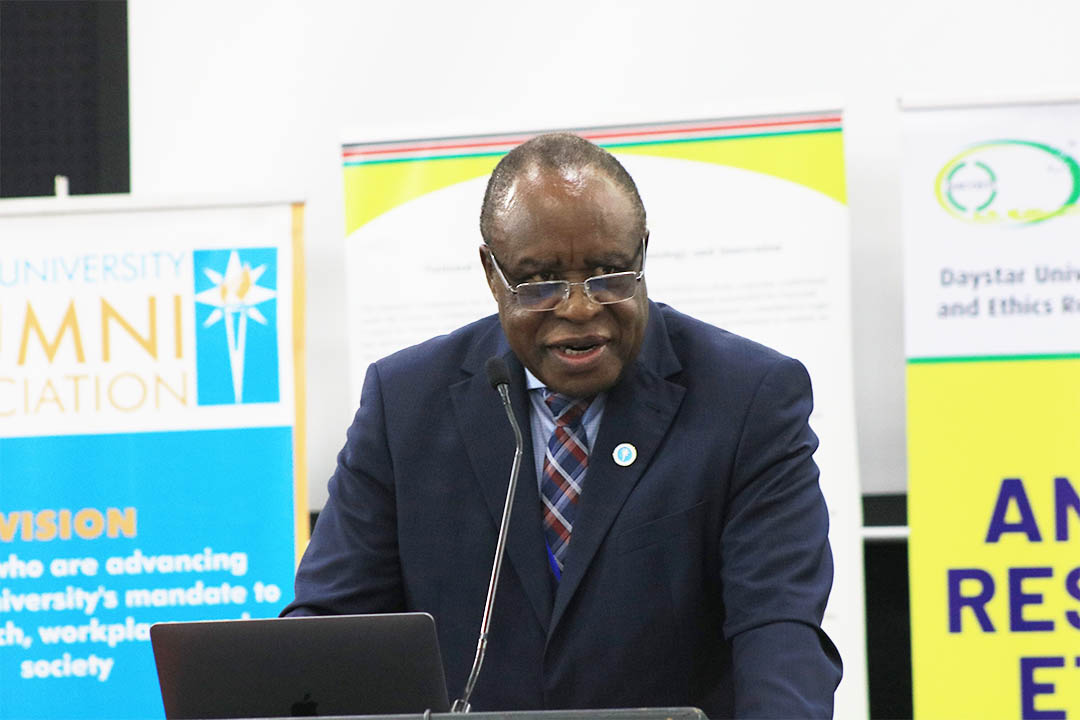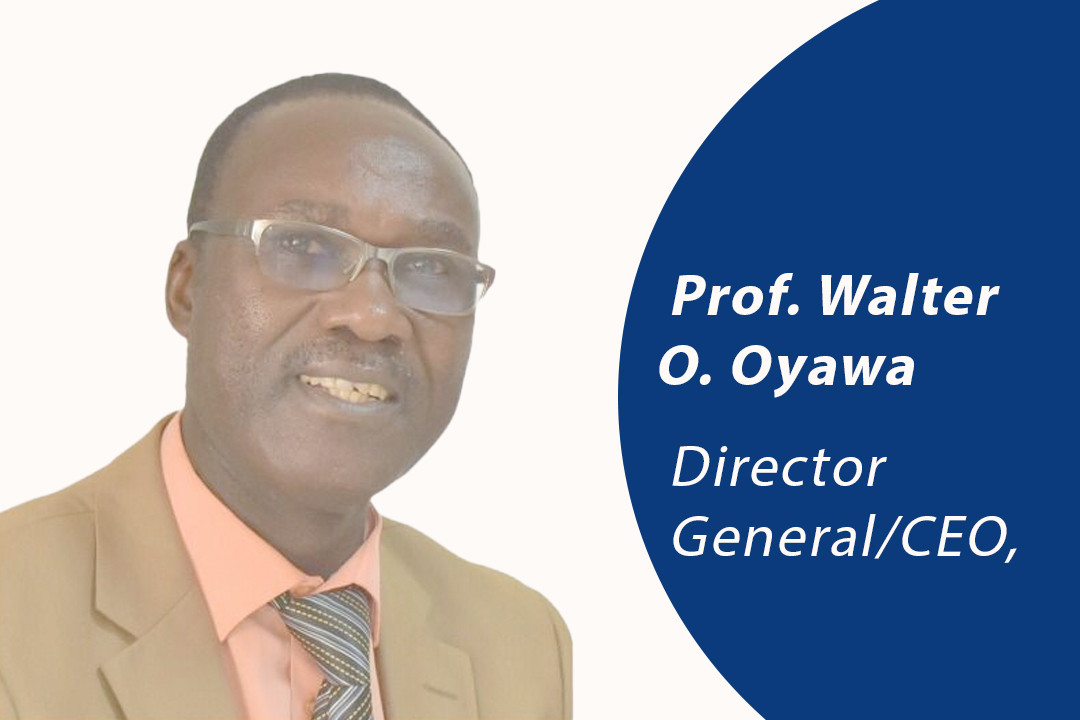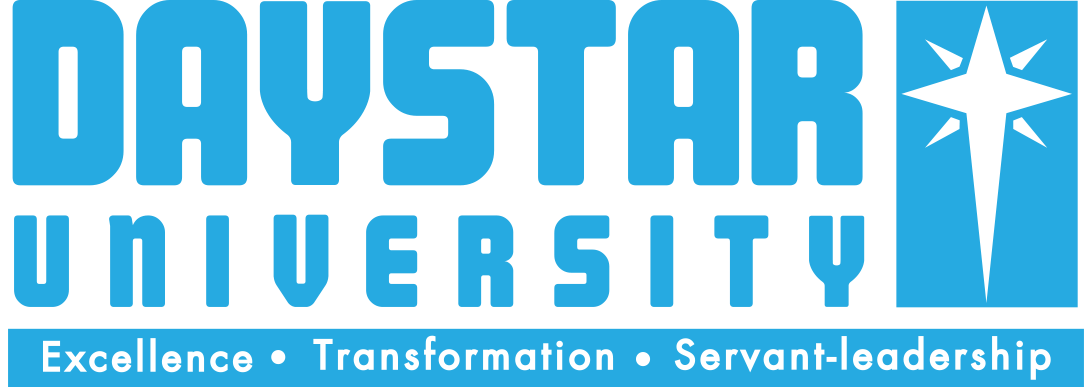
Universities challenged to make use of UNESCO research Instruments
Prof. Hubert Gijzen, Director and Representative, UNESCO Regional Office for Eastern Africa, when he addressed opening ceremony of the 2nd Annual Ethics Conference held at Daystar University Nairobi Campus on September 28, 202
Prof. Hubert Gijzen, the Director and Representative of UNESCO Regional Office for Eastern Africa has called on researchers to contribute to the dissemination of UNESCO’s normative instruments.
He spoke on September 28, 2022, during the official opening of the 2nd Joint Annual Research Ethics Conference which is co-hosted by Daystar University, the National Commission for Science, Technology, and Innovation (NACOSTI), and Daystar University Institutional Scientific and Ethics Review Committee (DU-ISERC).
The three-day conference themed: Strengthening Research Ethics in the Global South ends on Friday September 30, 2022, with a site visit to NACOSTI.
Prof. Gijzen said that funding allocation for research remained a major challenge in the Global South, with a majority of countries spending less than 1 percent of their Gross Domestic Product on research against the recommended 3 percent.
Referring to a 2021 rapid assessment conducted by NACOSTI, Prof. Gijzen decried the low level of awareness about UNESCO’s normative bio-ethics instruments, saying that only 15 percent of ISERCs are making reference to the research instruments.
Prof. Gijzen also noted with concern that out of the 34 papers lined up for presentation at the conference, only one referred to the UNESCO normative bio-ethics instruments.
Prof. Gijzen called on Daystar University and other research institutions to contribute to the dissemination of UNESCO’s normative instruments. He further underscored the need to strengthen women’s participation in science and technology, saying that globally, only 35 percent of women were involved.
Prof. Gijzen said UNESCO’s normative bio-ethics instruments included: medical ethics, ethics on artificial intelligence, universal declaration on ethics on human rights, and international declaration on ethics on human data.
He further underscored the critical role UNESCO plays in mobilizing its five core functions to strengthen research ethics. These, he said, include serving as a laboratory of ideas, setting research standards, capacity building, serving as a clearing house as well as a catalyst for international cooperation.

Daystar University Vice-chancellor Prof Laban P Ayiro addressing the delegates during the 2nd Annual Ethics conference held at Daystar University - September 28, 2022
On his part, Daystar University Vice-Chancellor, Prof. Laban P. Ayiro emphasized on the importance of honesty and commitment in scholarship. Referring to the history of ethics in ‘The Belmont Report,’ Prof. Ayiro called on researchers to apply the common rules of Respect, Beneficence and Justice for compliance, and cautioned them against using human subjects as a means to an end.
Also addressing participants virtually from Addis Ababa during the opening ceremony was NACOSTI Director General / CEO, Prof. Walter O. Oyawa.
Prof. Oyawa expressed concern over mis-representation and falsehood in research conducted during pandemics, which he said has had significant impact on public trust in science.

Prof. Oyawa called on stakeholders to be aware of and observe domestic laws and regulations, international legal instruments and norms relating to biological research including those on prohibition of biological weapons.
“Scientists should take responsibility to protect the welfare of both human and non-human research participants and to apply the highest ethical standards in research conduct, with full respect for the subject of research,” he said.
The three-day conference will be officially closed on Friday, September 30, 2022 by Dr. Evangeline Njoka MBS, the Secretary General/Chief Executive Officer of the Kenya National Commission for UNESCO (KNATCOM). After the official closing ceremony on Friday, delegates will visit NACOSTI headquarters to familiarize themselves with the Kenyan research regulator.
The conference is, with people attending both physically and virtually. The physical conference is hosted at Daystar University, Nairobi Campus.
The blended conference attracted more than 200 participants from six countries namely: Kenya, Nigeria, India, Zimbabwe, Uganda, USA and Canada. Among the conference delegates were 24 universities and 36 Institutional Scientific and Ethics Review Committees (ISERCs).
Thirty four (34) scholarly papers were presented on a broad range of thematic topics, key among them:
- History of Research Ethics
- Emerging technological trends and issues on research
- Research Misconduct
- The essence and procedures for research ethics clearance
- Importance of Ethics in Research
- Research Ethics and Publications
- Demystifying Research Ethics
- Protection of the Rights of Researchers, Human Subjects, Animals, Environment and Research Objects
- The Role of Institutional Scientific Ethics Committees (ISERCs) in Research
- Intellectual Property Rights
- Cost of Research
- The Challenges of Conducting Ethical Research
- The Science of Communication and Dissemination of Research Findings
- Commercialization of Research Output
- Protection of research data.
| For enquiries please contact Sr. Prof A.L. Lando Email: allando@daystar.ac.ke or Damaris Kimilu on Email: dkimilu@daystar.ac.ke or Mildred Mugambi on Email: mildred.mugambi@nacosti.go.ke |
-Ends-
